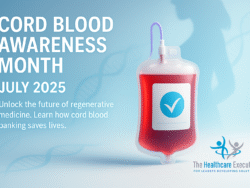Pulmonary Rehabilitation Week 2025: Executive Leadership in Lung Health

- Posted by Greg Wahlstrom, MBA, HCM
- Posted in Health Observance Calendar
Hospital Executives Must Champion Pulmonary Rehabilitation to Enhance Patient Outcomes and Drive Value-Based Care
Published: March 9, 2025
National Pulmonary Rehabilitation Week, observed March 9–15, 2025, presents a pivotal opportunity for hospital executives to spotlight the critical role of pulmonary rehabilitation (PR) in enhancing patient outcomes and advancing value-based care. PR programs are essential in managing chronic respiratory diseases such as COPD, asthma, and pulmonary fibrosis, which significantly impact patient quality of life and healthcare costs. By integrating comprehensive PR services, hospitals can reduce readmission rates, improve functional capacity, and elevate overall patient satisfaction. Leadership commitment to PR initiatives demonstrates a proactive approach to chronic disease management and aligns with broader healthcare objectives focused on preventive care and population health. As healthcare systems navigate the complexities of chronic disease prevalence, investing in PR programs becomes not only a clinical imperative but also a strategic advantage. Hospital executives are encouraged to assess current PR offerings, identify areas for enhancement, and allocate resources to support multidisciplinary teams dedicated to respiratory care. Engaging stakeholders across departments fosters a collaborative environment conducive to the successful implementation and sustainability of PR services. Ultimately, executive leadership in pulmonary rehabilitation signifies a commitment to excellence in patient care and positions hospitals at the forefront of innovative healthcare delivery.
The efficacy of pulmonary rehabilitation is well-documented, with numerous studies highlighting its benefits in improving exercise tolerance, reducing dyspnea, and enhancing the psychosocial well-being of patients with chronic lung diseases. Programs typically encompass exercise training, nutritional counseling, education on lung health, and psychological support, tailored to individual patient needs. For example, Lake Regional Health System’s PR program has demonstrated significant improvements in patient outcomes, including increased endurance and reduced hospital admissions. Patients have reported regaining the ability to perform daily activities and experiencing a renewed sense of independence and confidence. These outcomes underscore the transformative impact of PR on patient lives and the broader healthcare system. Hospital executives should consider these success stories as compelling evidence to advocate for the expansion and enhancement of PR services within their institutions. By doing so, they not only address the immediate needs of patients but also contribute to long-term healthcare sustainability and efficiency. Furthermore, showcasing such patient success narratives can serve as powerful testimonials to garner support from stakeholders and the community at large.
Implementing and sustaining effective pulmonary rehabilitation programs require a concerted effort from hospital leadership to allocate appropriate resources, foster interdisciplinary collaboration, and establish clear operational frameworks. Key components include recruiting and training specialized staff, investing in necessary equipment and facilities, and integrating PR services into the broader continuum of care. Hospital executives must also prioritize data collection and analysis to monitor program effectiveness, patient adherence, and clinical outcomes. This data-driven approach enables continuous quality improvement and demonstrates the value of PR programs to payers and policymakers. Additionally, aligning PR initiatives with organizational goals and performance metrics ensures that these programs receive the attention and support needed for long-term success. Engaging patients in the design and evaluation of PR services can further enhance program relevance and effectiveness. By adopting a strategic and patient-centered approach to PR, hospital leaders can drive meaningful improvements in respiratory health outcomes and overall healthcare delivery. Moreover, such initiatives can position hospitals as leaders in chronic disease management and innovation.
National Pulmonary Rehabilitation Week serves as an ideal platform for hospital executives to raise awareness about the importance of PR and to celebrate the successes achieved through these programs. Engaging in community outreach, hosting educational events, and recognizing the contributions of PR staff can enhance the visibility and perceived value of these services. Collaborating with organizations such as the American Association of Cardiovascular and Pulmonary Rehabilitation (AACVPR) provides access to valuable resources and best practices for program development and promotion. Furthermore, leveraging social media and other communication channels can amplify messaging and reach a broader audience. Hospital leaders are encouraged to share patient success stories, program milestones, and educational content to foster community engagement and support. By actively participating in Pulmonary Rehabilitation Week, executives demonstrate their commitment to respiratory health and their role in advancing comprehensive, patient-centered care. This engagement not only benefits patients but also strengthens the hospital’s reputation and community relationships. Ultimately, such initiatives contribute to a culture of health and wellness that extends beyond the hospital walls.
As the healthcare landscape continues to evolve, hospital executives must remain proactive in identifying and implementing strategies that address the growing burden of chronic respiratory diseases. Pulmonary rehabilitation stands out as a cost-effective, evidence-based intervention that aligns with the goals of value-based care and population health management. By championing PR programs, hospital leaders can drive improvements in patient outcomes, reduce healthcare utilization, and enhance overall system efficiency. Investing in PR also reflects a commitment to holistic, patient-centered care that addresses both the physical and emotional aspects of chronic illness. As we observe National Pulmonary Rehabilitation Week 2025, let us recognize the vital role of hospital executives in leading these transformative initiatives. Through strategic vision, resource allocation, and collaborative leadership, executives can ensure that pulmonary rehabilitation becomes an integral component of comprehensive healthcare delivery. In doing so, they not only improve the lives of patients but also contribute to the advancement of healthcare excellence and innovation. Let this week serve as a catalyst for renewed commitment to respiratory health and the pursuit of optimal patient care.
Discover More on Respiratory Health Leadership
Explore how your executive team can build enduring wellness frameworks with pulmonary rehabilitation, patient-centered care, and performance at the center.
Internal Links
- The Healthcare Workforce Crisis: Executive Solutions That Actually Work
- The 2025 Regulatory Roadmap: What CEOs Must Prepare For Now



